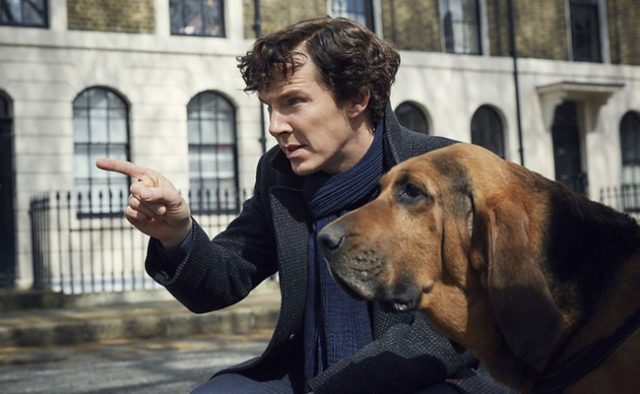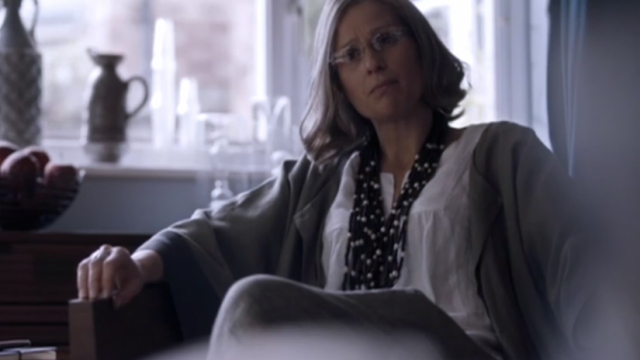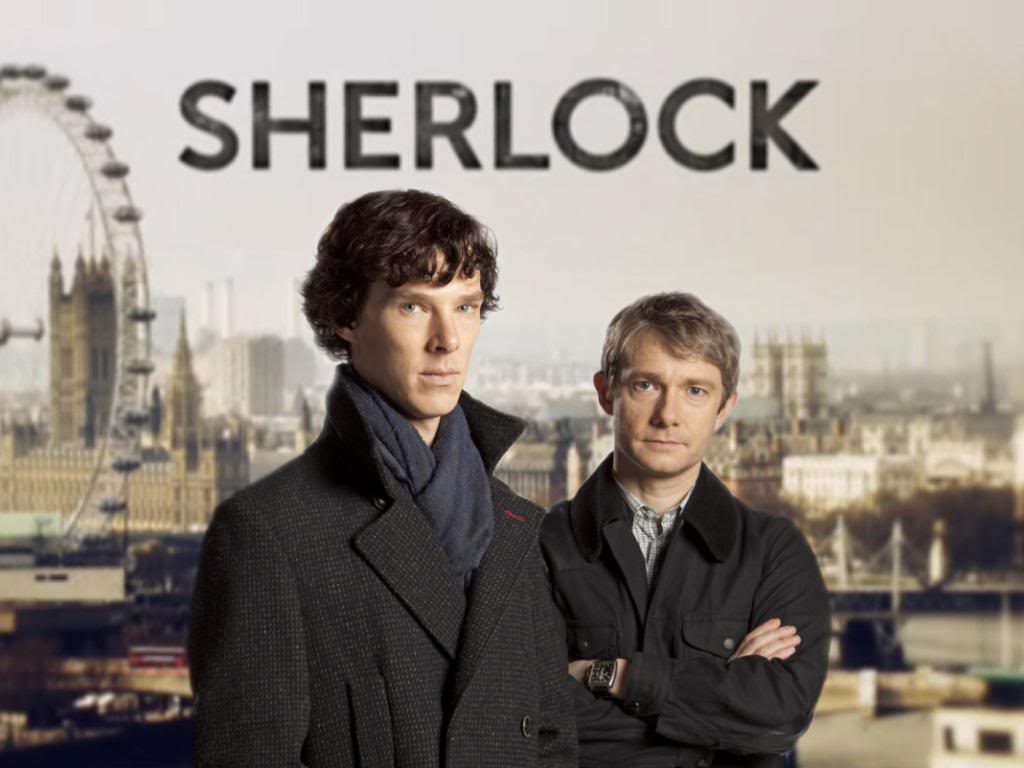NOTE: Spoilers from throughout the fourth series of, “Sherlock” are present in this review
Sherlock has largely been responsible for launching the mainstream careers of stars, Benedict Cumberbatch and Martin Freeman, but in a very noticeable way, the show has also evidently become a victim of its own lead actors’ success. New seasons of Sherlock have become very difficult to produce, despite them only being three 90-minute episodes long apiece, due to how extensively busy both Cumberbatch and Freeman have become, and that’s likely even true of showrunner, Steven Moffat, who is also the current showrunner of The BBC’s other biggest and most popular series, Doctor Who.
Finally however, a long three years after Series Three, if one doesn’t count 2016’s New Years special, “The Abominable Bride”, Series Four has finally made it to the airwaves… And it’s far and away the most underwhelming, disappointing and thoroughly ridiculous season in the show’s history to date. If ever there was a clear victim of Sherlock’s many production difficulties, it’s this fourth season. Audiences also seem to agree, as the season finale of Series Four saw a steep viewership decline that led to by far the show’s lowest ratings yet, with many viewers bailing early, even before the season was properly resolved. In short, as much as it really pains me to admit it, since this really was one of The BBC’s best modern shows when it started at the turn of the decade, it might be time to just wrap it up here, and put Sherlock out of its misery.

Things definitely didn’t start off well for Series Four, with season premiere, “The Six Thatchers” widely being considered the show’s worst episode to date. This entire episode simply served as a roundabout way to wrap up the story of John’s new wife, Mary Morstan, who was considered to be one of the most problematic elements of Series Three in her drastic re-tooling as a retired mercenary/assassin. The episode’s sense of mystery was non-existent, as Sherlock had to trudge along with the audience in this unnecessary trip through Mary’s former career, though mercifully, the show killed Mary off at the end of the episode. This finally signaled the apparent end of a big gamble with one of Sir Arthur Conan Doyle’s original Sherlock Holmes prose personalities, one that just didn’t really work in the end.
Even after Mary thankfully bit the dust though, we still had to trudge through an episode that yet again drove a tiresome rift between Sherlock and John, with John unrealistically blaming Sherlock for a situation that is entirely of Mary’s doing. The season’s second episode, “The Lying Detective” was at least a noticeable improvement over its lousy predecessor however, if for no other reason than the presence of Toby Jones, as a comically obvious undercover serial killer, Culverton Smith. The sense of mystery was somewhat restored here, though Jones being such an obvious villain still hurt the story and the intrigue, with John’s process of grief, and a few choice funny moments from Mrs. Hudson, ultimately being what elevated the story in any way. Fortunately, the ending twist, where both Sherlock’s witness and John’s therapist ended up being Sherlock’s insane and formerly unknown sister, Eurus in disguise, was also a big high point that at least capped off the episode on a strong note, and made up for Culverton inevitably and predictably being caught as a killer at the end.

The presence of Eurus did ultimately leave the season finale, “The Final Problem” as the best episode of Series Four’s trio, but the show still fumbled the ball in a few ways with its latest arch-villain. Eurus is nicely creepy, imposing and suitably well-performed by Sian Brooke, but she was also an over-the-top comic book super-villain who ran her own prison, and was so supernaturally intelligent that she could basically control people’s minds like the damn Purple Man. This had Sherlock really flying off the rails and straining its exaggerated modern realism to breaking point. Worse still though is that Eurus’ ultimate motivations were a huge let-down when they were revealed in the final minutes, where she’s ultimately unmasked as a scared girl who just wants her family back… And then just gets her family back. What was the point of all those murderous head games that comprised the episode then? Even worse is that the harsh, provoking treatment of Eurus really damns Mycroft and makes him look like an idiot, after he stashed her and kept her isolated in the island prison. If he’d just been nice to her and given her proper care, maybe she wouldn’t have endangered and killed all of those people that she did.
Disappointingly, the big Moriarty return cliffhanger from the end of Series Three also turned out to be a considerable let-down. Apparently, Eurus just had Moriarty record a bunch of footage, photos and other such tricks, apparently in the span of just five minutes (seriously?), then broadcast it all over Britain five years later (somehow), for the sole purpose of taunting Sherlock, because she wanted her brother back. If Eurus was that all-powerful, couldn’t she have just made someone send a damn E-mail asking Sherlock to visit? What’s even the point of the Moriarty business in the end? It just seems like a needlessly exaggerated way to further turn Sherlock into a melodramatic soap opera in its newer episodes, when it started out as a smart, engaging mystery drama.

On the bright side, Andrew Scott was able to briefly reprise his role as Jim Moriarty in a flashback sequence within the season finale, one that waited to identify itself as a flashback as an annoying way of dicking fans around (the few that showed up to watch the episode anyway), but that just ended up being a painful reminder of how far Sherlock has fallen since its excellent first two seasons. I don’t imagine most people would argue with me when I point out one of the many ways that Sherlock backed itself into a corner and really hurt itself in its newer episodes; The show killed off Moriarty way too early. Since then, Sherlock has been struggling to find a villain that’s just as charismatic, unhinged and deadly as Scott’s criminal mastermind, and it’s never succeeded. Rather than feel like an interesting introduction to an unseen corner of the Holmes family, the Moriarty cliffhanger ultimately just ended up being a cruel tease that amounted to nothing.
At the very least though, Series Four resolved a key childhood trauma of Sherlock’s that explained his behaviour as a, “High-functioning sociopath”, and brought him on the path to fully repairing his relationship and his business with John. This had the season finale ending on a satisfying, fitting note that could just as easily serve as the series finale, should Sherlock ultimately not get a fifth season. Like I said as well, perhaps it shouldn’t get one either. To be fair, Series Four wasn’t awful by any means, but it really wasn’t that great either. This season made it particularly evident that Sherlock has lost its way, and after the amount of corners it’s been backed into with bizarre writing decisions and the ill-advised early death of Moriarty from a couple of seasons ago, it’s uncertain that it could ever fully get back to the level of engagement and quality it was at when it started.

Should a fifth season happen, there’s still room to tighten the series and make it better, especially now that Sherlock and John have sorted out their other affairs and gone back to their usual business by the end of Series Four. If a fifth season doesn’t happen though, I also won’t lose any sleep over it, personally. Sherlock seems like it’s gone as far as it can go without wrecking the legacy from its better beginnings, and after the steep viewership decline and negative reception by the end of this season, The BBC would probably be gambling if they tried to eke out another season. Maybe things can turn around, but at this point, it’s more likely that this particular incarnation of Sir Arthur Conan Doyle’s famous super-sleuth should just be retired.

